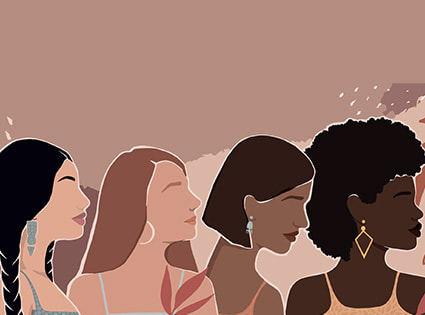New attack on minorities in Alaska
On April 6, the Alaska House of Representatives approved cutting Medicaid abortion funding, despite the fact that the courts have ruled previous attempts unconstitutional. Christopher Kurka, R-Wasilla, a candidate for governor, is the driving force behind the new initiative, and Kevin McCabe, R-Big Lake, says they don’t mind “appearing in court a hundred times,” if necessary, because “maybe we’ll get a different result.” Rose O’Hara-Jolley, state director of Planned Parenthood, calls the measure “an attack on people of color, Native Alaskans, and indigenous communities.”- Planned Parenthood Alliance Advocates, Alaska’s largest provider of reproductive health services through Medicaid, has already won two cases against similar attempts in the state Supreme Court in the last twenty-one years. Rose O’Hara-Jolley, state director of Planned Parenthood, believes the amendment is a cruel and unfair restriction on access for low-income people. Sol de Medianoche has spoken with her.
Will your organization, Planned Parenthood, once again take this measure to Court? Planned Parenthood Great Northwest Hawaii, Alaska, Indiana, Kentucky, the Planned Parenthood health care affiliate in Alaska, will always explore all our options to ensure patients have access to constitutionally protected health care. We are watching this amendment closely. - Would you qualify this measure of the Republican Party as a demonstration of social insensitivity, classism, xenophobia, racism, etc.? When politicians choose to cut critical social safety net programs like Medicaid, they are making policy decisions that negatively impact the health and wellbeing of people who are most in need. Whether you have a job or how much money you make should not change the quality of health care you have access to, particularly as we are still in the throes of a deadly pandemic. We also know that Medicaid is disproportionately used by people of color, including Indigenous and Native people in Alaska, along with people in rural areas. When you cut Medicaid, you are choosing to take away health care access from these populations. - Can you give us statistics about the population that would be affected if this measure is approved? Medicaid provides health care for over 200,000 low-income Alaskans who otherwise would be uninsured. Women make up the majority of Medicaid enrollees, and approximately 1 in 5 women of reproductive age across the United States relies on Medicaid for their health care coverage. Due to structural inequalities in our country that link racism, sexism, and economic inequality, people of color and Native and Indigenous communities disproportionately utilize Medicaid to access health care in Alaska. This amendment is a direct attack on these communities. For example, Medicaid covers nearly 1 in 3 American Indian and Alaskan Native adults. These communities have endured a history of state-controlled reproduction, coercion, and denial of bodily autonomy, and this amendment continues this legacy by denying this community the ability to meaningfully consider all options available to them, threatening their health and lives in the process. Politicians should not be able to deny anyone’s health services, including abortion care, just because of their income or their insurance provider. - Do you think that a good sex education can reduce unwanted pregnancies? Numerous studies have shown that comprehensive and age-appropriate sexual health education can reduce unintended pregnancies, reduce sexually transmitted infections, and reduce instances of sexual abuse and rape. Planned Parenthood strongly supports sex ed programs that teach about sexual health, safety, and consent. Despite extensive research showing that comprehensive sexual health education improves health outcomes and reduces violence, Alaska schools are not required to teach sex education, and the state has no standards requiring information on sexual health to be medically accurate. As of 2018, only about half of Alaska secondary schools taught how to access valid and reliable information related to HIV, other STDs, and pregnancy, even though over 90 percent of Alaskan voters agree that sex education should be medically accurate, age-appropriate, and should cover healthy relationships, consent, and communication skills. This year, Sen. Gray-Jackson introduced SB 157, a bill requiring state standards for sexual health education to ensure all young people in Alaska get the education they need to lead healthy, safe lives. This bill would take an important first step towards lowering Alaska’s high rates of sexually transmitted infections, unintended pregnancies, and sexual violence. |
